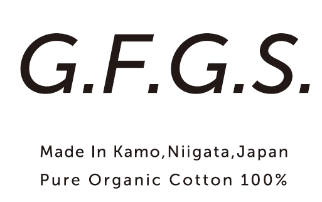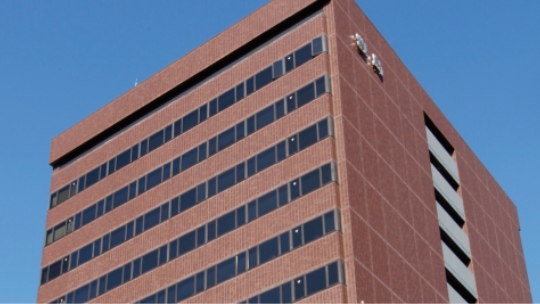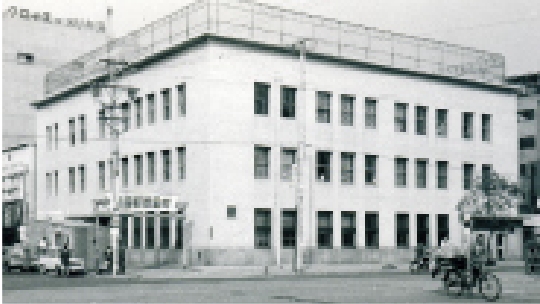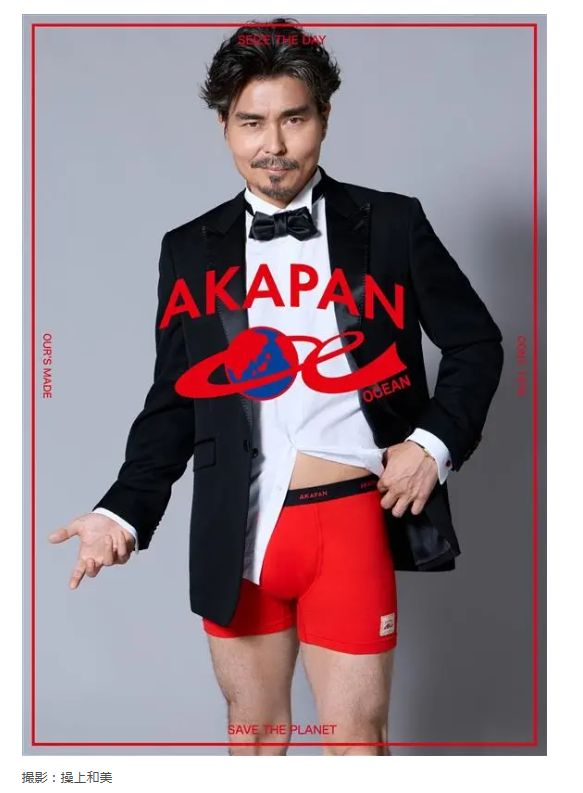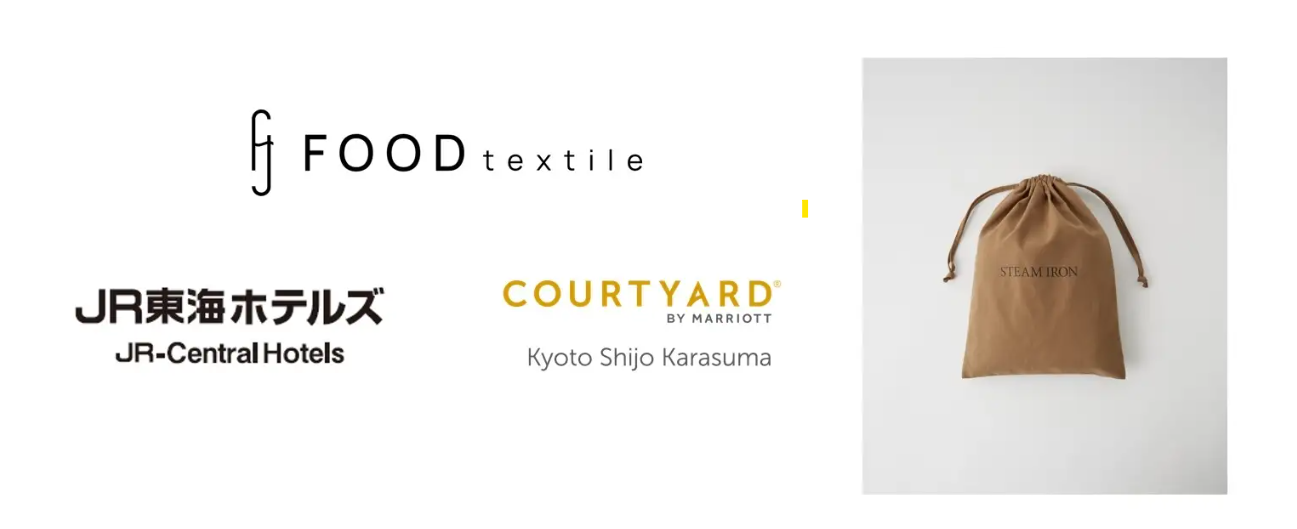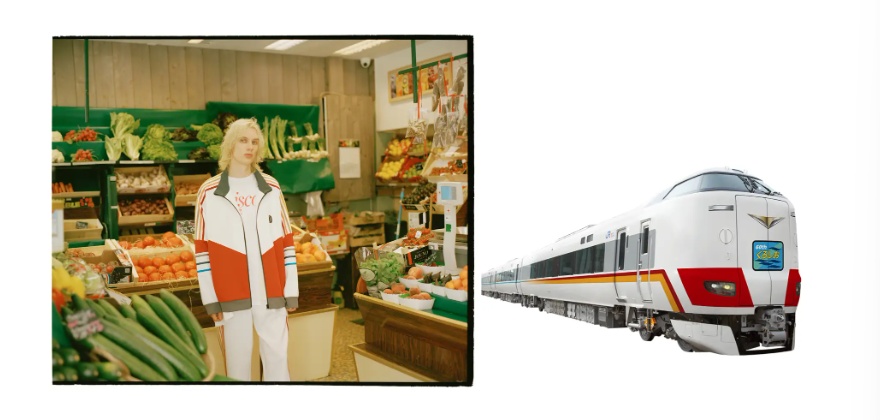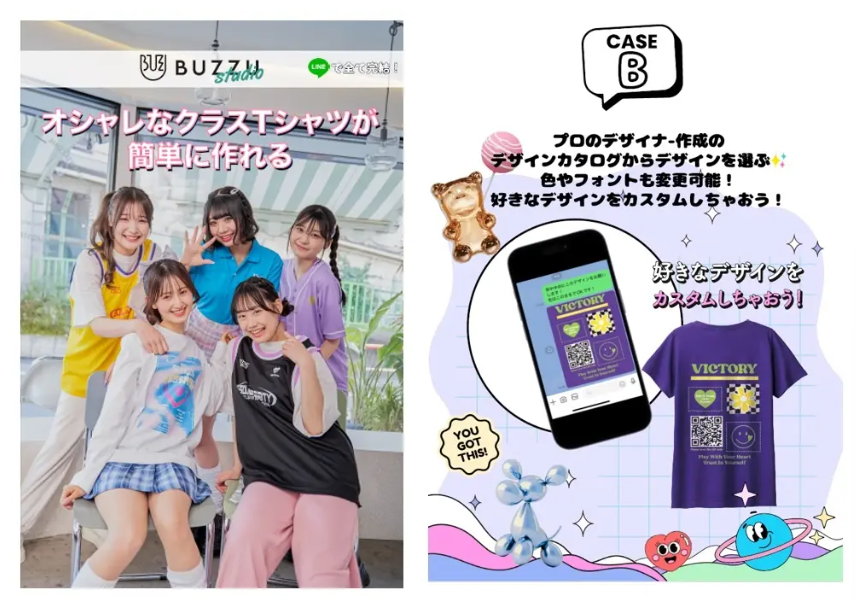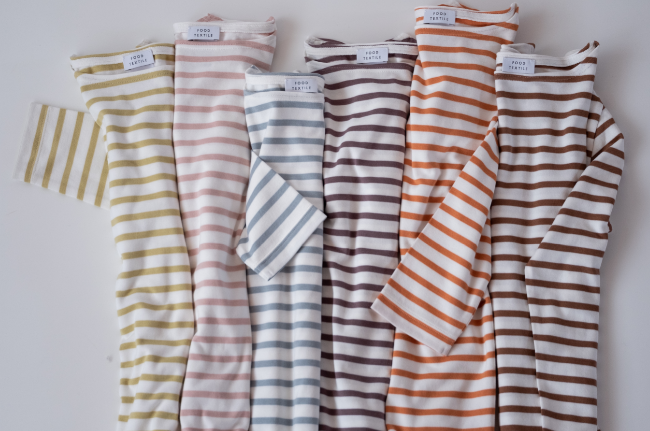
■What is GFGS?
There are many knit production areas in Kamo City, Niigata Prefecture, its suburbs, and the Chuetsu region, and experienced craftsmen continue to produce high-quality products every day. GFGS produces ORDERBORDER, an original cut-and-sew that is completely made-to-order, in a shopping street in Kamo City. We create products based on the desire to revitalize the local area from the shopping district of Kamo City, which is dotted with small factories, and to cherish <Made in Kamo>.
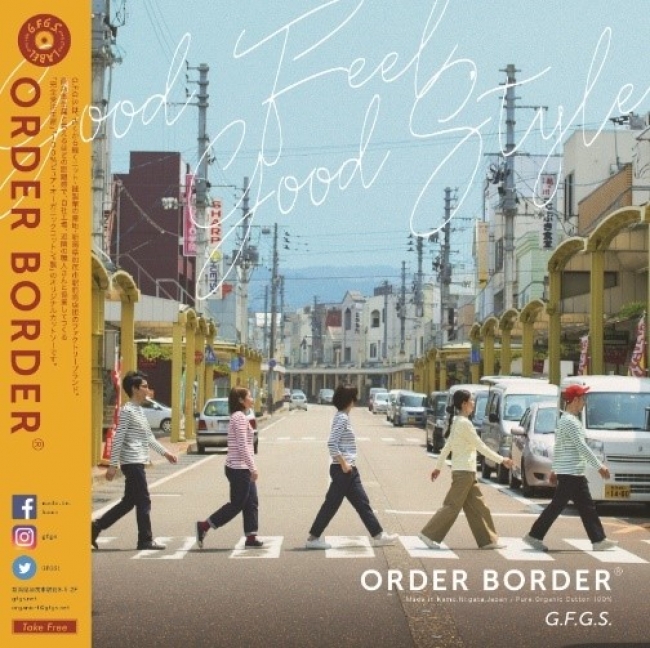
■FOOD TEXTILE×G.F.G.S.
FOOD TEXTILE is a textile trading company TOYOSHIMA As a bridge between the food and apparel industries, we focus on the "color" of food. This is a project that utilizes proprietary dyeing technology to commercialize food residues provided by various food-related companies in cooperation with each apparel brand. Products with clear traceability allow for quick and effective response in the event of quality problems. The T-shirts to be sold this time were knitted by G.F.G.S. in Kamo City based on yarn dyed by FOOD TEXTILE using various food colors, and was consistently cut and sewn in Kamo City. It is a collaboration product that can trace "which raw material is used", "how much residue is used in the product", and "who did the knitting and sewing", which is a collaboration product realized only by FOOD TEXTILE and G.F.G.S.
■Clothing created with the involvement of the food industry
The yarn is made of Turkish organic cotton that can be traced consistently from farm to spinning. While involving the food industry, G.F.G.S. is particular about "MADE IN KAMO" based on the colors extracted by FOOD TEXTILE. The original color of the red turnip is Kiso Town, Nagano Prefecture and Tokyo University of Agriculture Toyoshima & Co., Ltd. Through a joint project, we use unused red turnips from Kiso Town, "Rooibos" is a non-standard herb from the tree of life, "Drip coffee" is dried from Sarutahiko Coffee, "Sakura" is a non-standard edible cherry from Yamama Sangyo Co., Ltd., "Matcha" is a non-standard tea leaf from Nanzanen, and "Blueberry" is a non-standard blueberry from Horiuchi Fruit Garden.
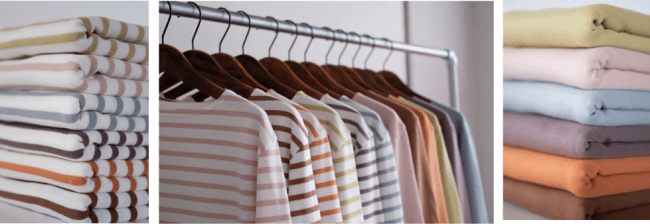
■ Product overview
Product name Borderon T
Color Drip Coffee Rooibos, Sakura, Matcha Red Turnip, Blueberry
Size Men's, Women's, Kids Size S/M/L
Price (excluding tax) 12,000 yen
Product name Solidron T
Color Drip Coffee Rooibos, Sakura, Matcha Red Turnip, Blueberry
Size Men's, Women's, Kids Size S/M/L
Price (excluding tax) 12,000 yen
<Pre-sale>
10/23 (Wednesday) ~Daimaru Tokyo 7F men's floor
10/30 (Wednesday) ~Matsuzakaya Nagoya South Building B2F event space
<Sales date>
Scheduled for 11/1 (Fri.) ~ FOOD TEXTILE Official Online Shop
http://www.foodtextile.jp/
■ "FOOD TEXTILE"
Food Textile is a project to reuse food waste from the fashion industry. We buy non-standard ingredients such as irregular shapes and scraps of cut vegetables from food-related companies and farms, extract the ingredients contained in the plants, and dye them with dyes. In addition to developing original products, we have worked with various domestic fashion brands to promote production, sales, and commercialization, and have tackled the food loss problem from the apparel industry. Currently, we are building a sustainable system that connects industries by collaborating with more than 15 domestic food-related companies, agriculture, and farms.
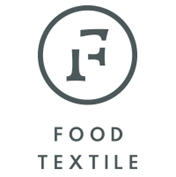
■ "GFGS"
GFGS stands for "Good Feel, Good Style." New ideas, carefully selected materials, and accumulated techniques are incorporated into the striped cut-and-sew, and we continue to create products with sincerity in the shopping district of Kamo City, Niigata Prefecture. The clothing items I'm making are all borders, but my creative thinking is wide-ranging. Magazine publication, contemporary music labels, collaboration items with various fields, "border" is media.
